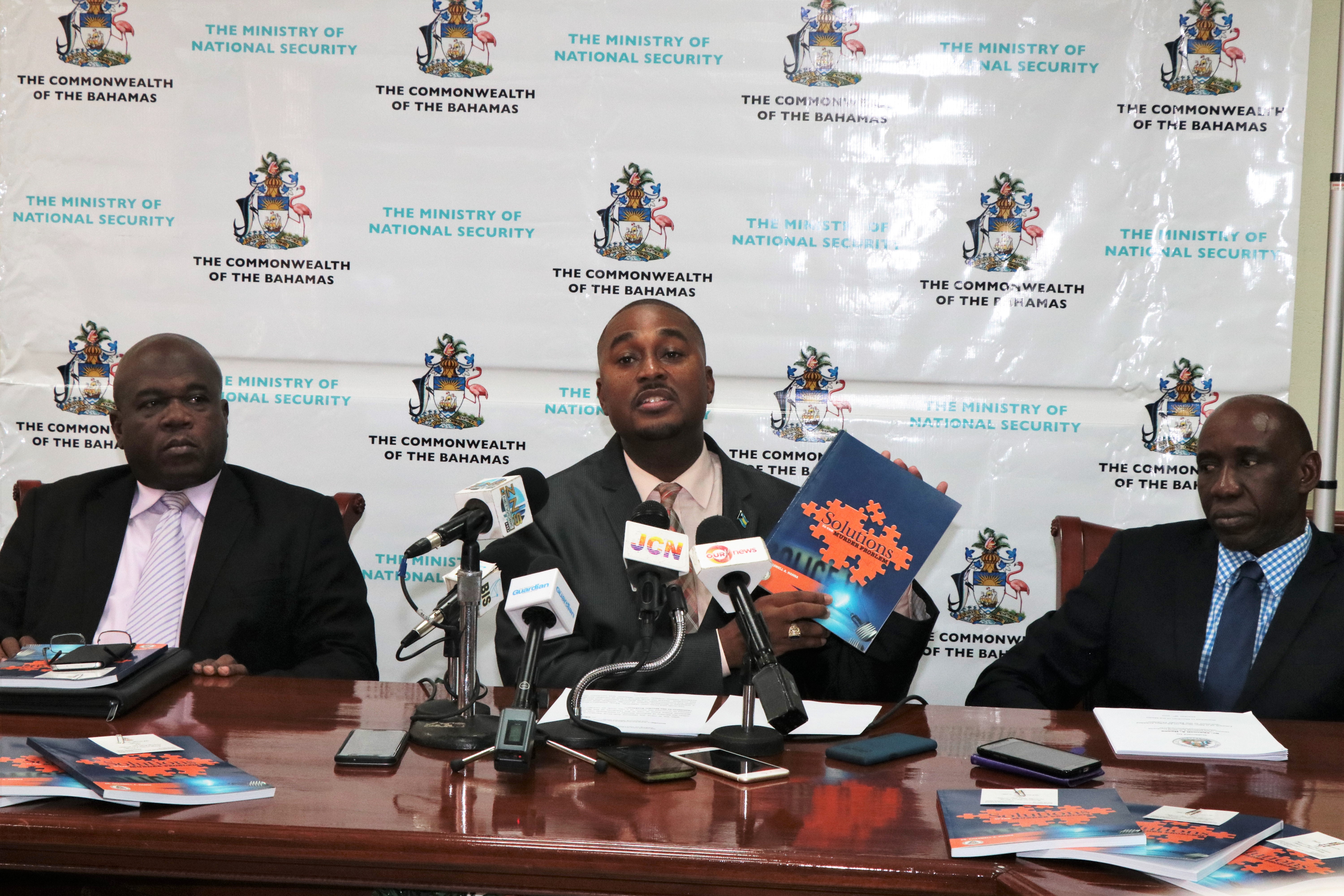
NASSAU, The Bahamas – Director of the National Anti-Drug Secretariat (NADS) within the Ministry of National Security, and Superintendent of Police Dr. Chaswell A. Hanna on October 18, 2017 announced the launch of a new study on murders entitled, “Solutions to the Murder Problem,” under the auspices of NADS in partnership with the Royal Bahamas Police Force and the University of The Bahamas.
“This study had three main objectives,” Dr. Hanna said at the launch, held at the Churchill Building. “Firstly, Chapters 1 through 6 presented a descriptive analysis of murder incidents that occurred within The Commonwealth of The Bahamas between 2010 and 2015 – 719 murders. During this study period, a host of variables including incidence, victims, suspects, motives, detection and conviction were collected and analyzed from case files and local criminal justice databases.”
Secondly, Dr. Hanna said, Chapters 7 and 8 presented a comprehensive review of literature on the issue of homicide prevention and ways by which detection rates may be improved.
“Best practices and innovative preventative programs devised and/or adopted by law enforcement agencies throughout the world were also shared and examined,” Dr. Hanna said. “Careful attention was given to the results of scholarly evaluations of such programs to determine the extent of their effectiveness.”
Finally, he noted, Chapter 9 presents a new Murder Reduction Strategy for The Bahamas based on the findings of this study.
“This strategic plan proposes the introduction of several new police initiatives, policy adjustments, constitutional amendments and community-based programs to reduce murder and other violent crimes,” he pointed out. “The strategy gives evidence-based solutions to policy makers which they can use to guide decisions.”
Dr. Hanna said the some of the “more interesting” findings included the following: The Bahamas’ murder rate ranks 13th out of a survey of 142 nations; murders are heavily concentrated in communities which fall below the average household income line; and that persons involved in criminal activity are more likely to be murdered than persons who are not involved in criminal activity.
The study also found that 19% of murder victims were on bail; 39% of persons charged with murder were on bail; when compared to the United States, local detection rates tended to be higher; and that there are over 200 murder cases still pending trial for the study period.
Juries, Dr. Hanna said, returned a guilty verdict in 76% of the cases presented to them for deliberation, and most sentences for murder convictions included 31-40 years imprisonment.
“Recommendations offered in the Murder Reduction Strategy are based on the findings of this study and associated research and may not necessarily reflect the views, opinions or positions of the Ministry of National Security or the Royal Bahamas Police Force,” Dr. Hanna pointed out.
He noted that the Murder Reduction Strategy is comprised of the following seven key action points: Punish the Most Violent Offenders; Stop Illegal Guns Entering The Bahamas; Create a DNA Forensic Laboratory; Dismantle Criminal Gangs; Dissuade Youths from Using Drugs; Increase Economic Opportunities for at-Risk Youth; and Increase Educational Achievement.
“While some of these recommendations may raise some eyebrows, presenting them provides a space for policy makers to take a fresh look to this national issue,” Dr. Hanna said. “Finally, we are happy that this study adds to the relatively small, but growing, body of local research, which can be furthered explored by other researchers at the University of The Bahamas.”
Dr. Hanna stated that the following Friday, October 20, 2017, he would be presenting the details of the Strategy at the University of the Bahamas’ Harry C. Moore Library at 12:30pm. This event, he noted, would be free and open to the general public.
“A free copy of the study can be downloaded at our website www.bahamas.gov.bs/nads and the University of The Bahamas’ website,” he added.







